Finca Mountain Villa Rica
“We aren’t really sure what El Nino will do this year, but resistance to Nematodes as well as La Roya is important”
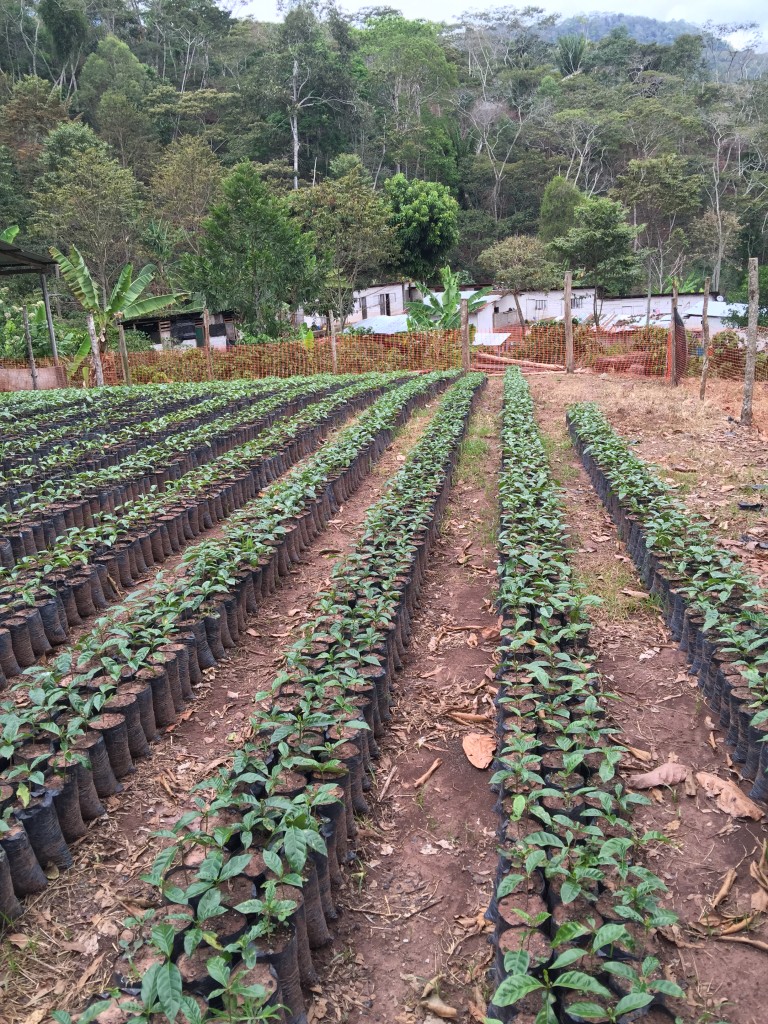
Rows of Limani coffee trees getting ready for to be planted. Finca Mountain Villa Rica is adding Limani because it has been one of the more successful cultivars during this time of environmental change.
Farmers in Peru have to adapt to a changing climate, and the better ones are also proactive. In some environments they have to think about stocking varieties that are going to survive as much as those that are in demand. A healthy and well processed Timor hybrid is going to be vastly more delicious than a sickly or poorly milled Bourbon. As the years pass we watch farmers respond to changing trends, changing weather and changing markets. This is an agile group of business people considering how slowly things appear to move on a mountain farm.
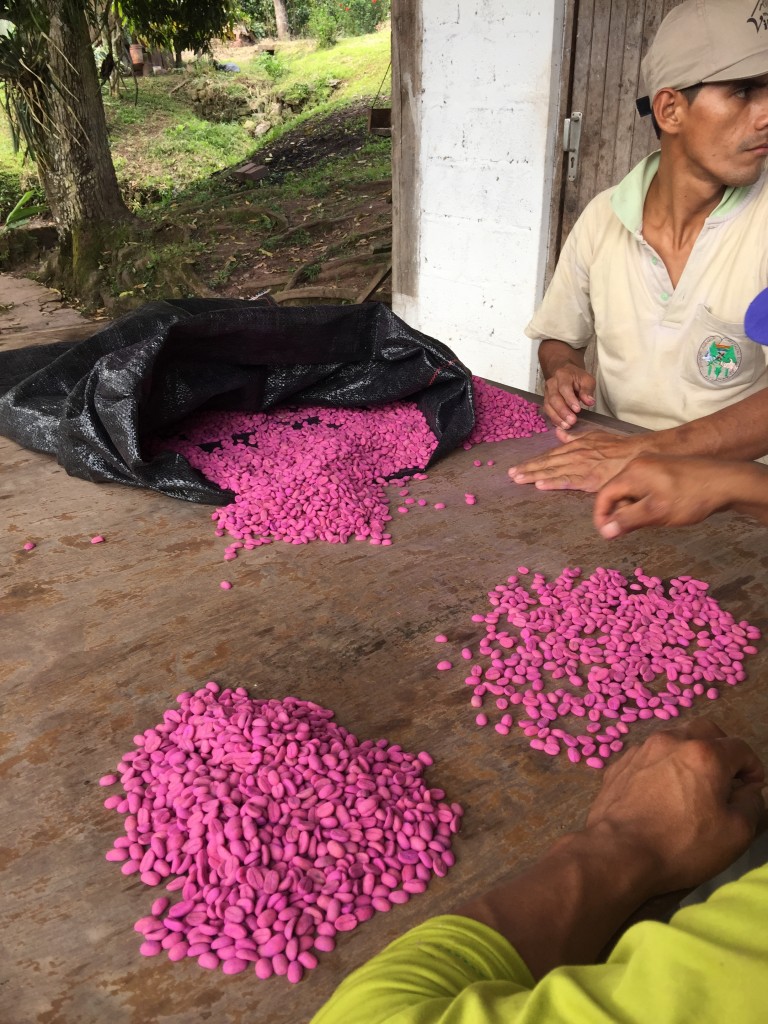
This crew is sorting Limani seeds. The pink coating is an anti-fungal substance that keeps the seeds viable until planting. At every farm we visited we saw tremendous “off season” work focused on changing and adapting to survive and thrive.
Daniel Vier has a third generation Peruvian of German and Swiss extraction. His family immigrated from Germany to work in the lumber industry, and have since adapted with changing times. Mountain Villa Rica is a farm going in multiple directions. Juan Luis Vier, Daniels father, after many years serving primarily the commercial grade coffee market, developed a love of specialty coffee and initiated a transition to better quality. On the flip side the farm is also transitioning stock based on brutal market prices and problematic pests and diseases.
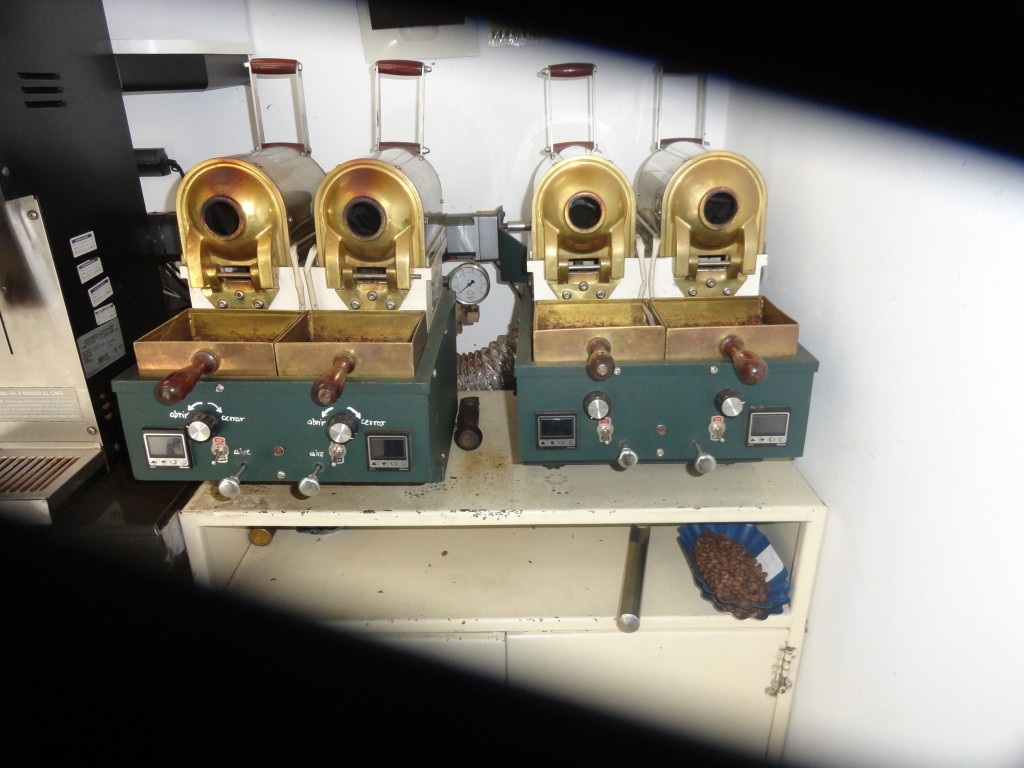
The ever present sample roasters. They guide our way, they light our path, they convict the bad actors and reward the diligent. Long may they shine! Once a person catches the bug, it becomes an obsession.
Finca Mountain Villa Rica has a team that is clearly into their jobs. The experiments on the table, and the way the team described them show this farm is an up and comer. Anaerobic processed coffees and a wide range of mucilage dried coffees got the day off to a good start. When we cupped, the team listened intently and asked questions about vague responses. They wanted details, and scores. The coffees we cupped were already sold, but still the cupping seemed important for moving forward.
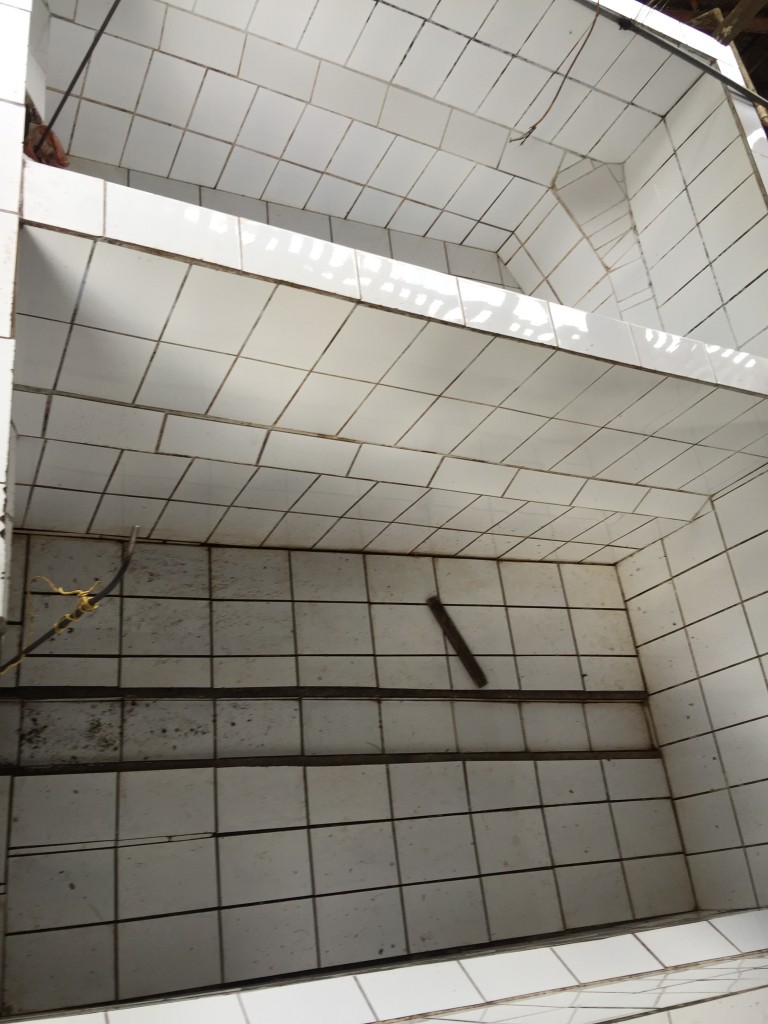
Tiled tanks are much more easy to clean than rough concrete. a good clean tank helps the farmer control quality.
Some of the things the farm manager does to control or improve quality might be unfamiliar to a coffee consumer, but for perspective I will describe one interesting thing he does to control quality.
In part because there are so many varieties of coffee, each of which ripen at different colors, In order to verify the ripeness of coffee the manager takes a brix reading. At 22-28 the cherry is in the ideal range, so he takes an example of the perfect cherry and shows it to the pickers so they know to pick only cherries at that specific color. Cherries outside that range are rejected. It may sound odd that the pickers might not know what a ripe cherry looks like, but to be honest, not all farmers really care that much whether the whole crop is picked ripe. The farm manager really does have to be specific and also provide training, in order to get what he wants.
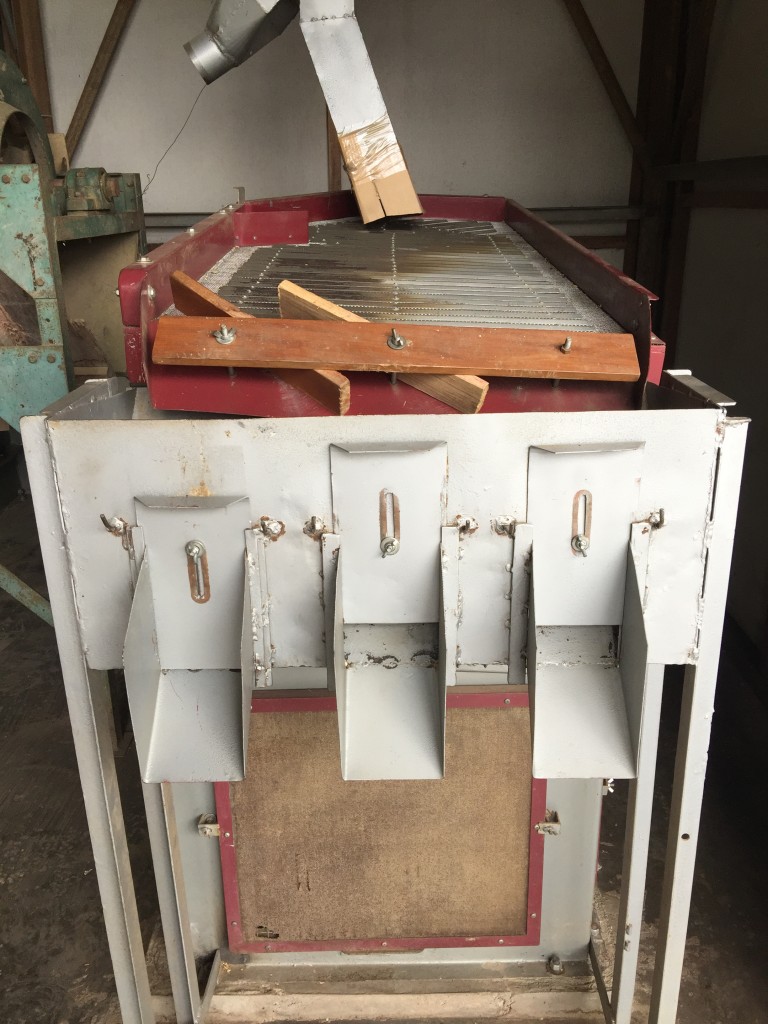
This is a tiny little oliver. The slanted table shakes, causing the more dense beans to climb to the left, and the lighter beans to separate down. The little wood slats at the front direct the beans into the three shoots. Voila, the coffee has now been sorted into three different density ranges.
This farm has some really cool people working it, and all of the basics needed to produce great coffees. For the sake of Swell Coffees I an a little sad that all the coffees were already sold out, but then again, we cannot buy everything, especially not at our relatively small size. BUt dange that little Oliver pictured above is just adorable. I want one for the office.
No comments yet.